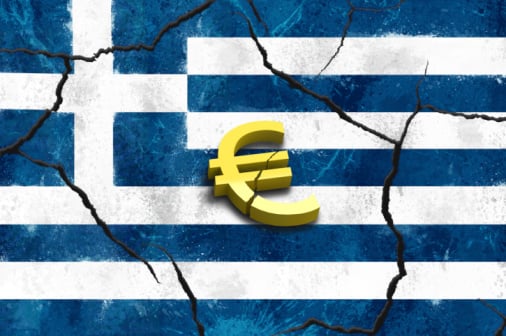Economy
Politics and Uncertainty Take NBG Under $1 and Pound the Greek ETF
Published:
Last Updated:
There is yet one more bit of evidence that financial markets and investors do not like socialist regimes and the chance of defaults. The leftist Syriza Party won Greece’s most recent parliamentary elections. The new Greek prime minister is Alexis Tsipras, and Finance Minister Yanis Varoufakis is referred to as a Marxist. While the pledge is not for a true Greek default, the markets simply refuse to trust that they just want to renegotiate terms. Source: thinkstock
Source: thinkstock
The reality is that the world finally has figured out that dealing with Greece’s government is becoming like dealing with troubled Latin American markets of years past, except perhaps even worse. What creditors have learned is that Greece’s ability to sign binding international and domestic agreements, and to enact laws, is effectively worthless. All that has to occur is that a no-confidence vote can be called, and new elections will come if the incumbent fails to win the measure.
In case you have not paid attention to the financial media, Greece has taken a pounding in the few days since the election. Word that Tsipras is threatening to halt privatizations is only adding to the market pressure.
National Bank of Greece S.A. (NYSE: NBG) has seen its American depositary shares (ADSs) break under $1.00 on Wednesday, and the new 52-week range is $0.95 to $5.83. The most recent price of $1.01 is down from a price last Friday of $1.68 — a decline of some 40%! A drop of this much might make you think that Tsipras and Varoufakis were on the road to putting it out of business.
ALSO READ: IMF Cuts Global Growth Outlook
Standard & Poor’s has just placed Greece’s B/B ratings on CreditWatch Negative. The credit note starts out by saying that some of the economic and budgetary policies of the new government are simply incompatible with the prior agreement with Greece’s official creditors. The risk is that failing to reach a new agreement will harm Greece’s funding position and creditworthiness.
Another show of force to alert investors just how harsh things have been is the monumental drop in the Global X FTSE Greece 20 ETF (NYSEMKT: GREK). After a 10% drop by mid-Wednesday to $10.80 on that day alone, the new 52-week range is down to $10.63 to $25.76. Last Friday this exchange traded fund was at $13.06, so it has lost 17%. This ETF tracks the FTSE/Athex 20 Capped Index. To put the loss into perspective, it would be like the Dow Jones Industrial Average falling 3,000 points in three trading days, with two-thirds of that drop or so coming on one day alone.
All the analyst efforts to defend shares of the National Bank of Greece have been extremely costly. Credit Suisse initiated the bank as Outperform, and both Nomura and Deutsche Bank raised their NBG ratings to Buy last June. J.P. Morgan raised its rating to Overweight back in May. It was not bad analysis, but it is the structure of Greece and how the game can change without notice. The long and short of the matter is that losses of this magnitude can easily happen when investors simply cannot rely on traditional rules of finance, law and common sense from a nation.
Losses of this magnitude sound awful. The reality is that they are only adding insult to injury. After accounting for two reverse stock splits, NBG was at the equivalent of over $100 in late 2010. Having the Global X FTSE Greece 20 ETF under $11 is another bruising. This ETF debuted in late 2011, and it peaked above $25 in 2014. For a comparison there, that is worse than a 50% drop — the equivalent of close to a 10,000 point drop in the Dow Jones Industrial Average.
ALSO READ: The Most Corrupt Countries in the World
Is there a point that the top nations in the European Union will just decide that having Greece as a member is simply not worth the trouble? Does anyone have any drachma left?
Want retirement to come a few years earlier than you’d planned? Or are you ready to retire now, but want an extra set of eyes on your finances?
Now you can speak with up to 3 financial experts in your area for FREE. By simply clicking here you can begin to match with financial professionals who can help you build your plan to retire early. And the best part? The first conversation with them is free.
Click here to match with up to 3 financial pros who would be excited to help you make financial decisions.
Thank you for reading! Have some feedback for us?
Contact the 24/7 Wall St. editorial team.